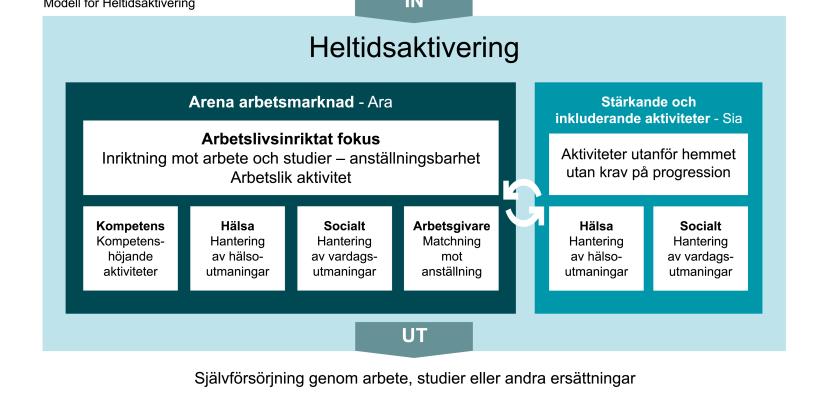
Arena Arbetsmarknad - Labour Market Arena

About this good practice
Linköping has a high proportion of long-term unemployed residents lacking the skills and work experience required to match the local labour market demands. This increases the municipality´s costs for long-term social assistance, as well as the risk of people ending up in socio-economic vulnerability. Since a shorter educational background is the single biggest factor for long-term unemployment, non-EU migrants are especially vulnerable - in particular if they also lack basic language skills.
Parallel supplementary efforts are key in order to meet the individual's needs and give support in dealing with complex challenges that hinders self-sufficiency. Therefore, Arena Arbetsmarknad combines work-like activity with skill-enhancing efforts ranging from language training and health knowledge to social- and civic orientation for migrants, with a clear focus on sustainable establishment on the regular labour market.
When participants get enrolled into Arena Arbetsmarknad by their social worker, a case manager who accompanies the participant on the journey towards self-sufficiency is assigned, and an action plan is designed based on individual needs. The participant's progress is regularly evaluated using a form to estimate their own ability in various labour market-related areas. Early in the process the case is also shared with an employer team who, through outreach activities, try to match the participant's skills to the needs of employers in the public or private sector.
Expert opinion
Resources needed
Arena Arbetsmarknad has been implemented based on available resources within the Integration and Labour Market Administration. Within the administration, the municipal labour market efforts in its entirety are brought together, including case managers, coordinators and social workers.
Evidence of success
Arena Arbetsmarknad has improved the support to non-EU migrants and their labour-market integration. Over 550 non-EU migrants has participated in its activities, making up roughly 60% of the total number of participants. 53 non-EU migrants have already finished their activities and found either subsidized or unsubsidized employment. In total, the number of households with long-term social assistance as well as the number of children in these households has decreased by 10%.
Potential for learning or transfer
The strategies that form the basis of Arena Arbetsmarknad - the individual at the center, short lead times, mandatory work-like activity, parallel supplementary efforts, a coordinating way of working, progress measurement through self-assessment and clear milestones - can be applied in whole or in part in most environments. Therefore, we believe that there are many parts of this approach for other regions to be inspired by. Since non-EU migrants make up a large share of the target group, the combination of work-like activity and skill-enhancing efforts - such as language training, vocational training and civic orientation - are key.
It is also important to stress that since Arena Arbetsmarknad is an approach as much as a way of working, Linköping still has a lot to learn from others regarding skills matching, strengthening the professional’s belief in the individual's ability and capacity, and designing interventions and activities that meet the needs of the individual.
Further information
Good practice owner
You can contact the good practice owner below for more detailed information.
